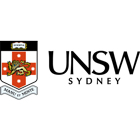Master of Global Health/Master of Infectious Diseases Intelligence (Extension)
Master of Global Health/Master of Infectious Diseases Intelligence (Extension)
The two-year Master of Global Health/Master of Infectious Diseases Intelligence (Extension) dual extension program is an innovative approach to postgraduate health education providing students with an advanced and integrated understanding of global public health focused on infectious diseases epidemiology and control that can be applied to local and global settings…
Categories
COURSE DESCRIPTION
The two-year Master of Global Health/Master of Infectious Diseases Intelligence (Extension) dual extension program is an innovative approach to postgraduate health education providing students with an advanced and integrated understanding of global public health focused on infectious diseases epidemiology and control that can be applied to local and global settings including resource constrained, middle income and developed countries. The MGH/MIDIext program meets a well-recognised need to strengthen capacity to respond to new and emerging disease threats, and management approaches for the identification, assessment, prevention and control of infectious diseases within resource-constrained settings in global contexts. The MIDIext provides the opportunity for students to extend their knowledge and skills in infectious diseases intelligence research by completing additional research methodology courses and/or an advanced research project in an infectious disease-related topic.
Graduates are equipped with core public health skills including epidemiology, biostatistics, health promotion, health policy, planning and management and those required to address the challenges of the social determinants of health together with advanced understanding of the public health aspects of infectious disease surveillance and intelligence, outbreak investigation and response, infection prevention and mitigation. In an era of emerging and re-emerging infectious disease threats, the public health approach to understanding and controlling the spread of infectious diseases in populations requires a multisectoral approach, a MGH/MIDIext program provides students with the capacity to draw on interdisciplinary knowledge and research to address global health challenges, including the politics of global health, globalisation, decolonisation, human rights and the environment. By undertaking an extension program, graduates leave with an integrated understanding of the specialised skills required to undertake research and generate evidence that enhances infectious disease prevention and control.
The program fosters judgment-ready, global public health leaders who can contribute to professional public health practice in the control of infectious diseases and health emergencies and improving population health across a range of contexts.
Graduates typically find work through a range of employers, including bilateral and multilateral international aid organisations, UN-based and development-based organisations, civil society and other non-government organisations, private foundations, health departments, academia, organisations, military and first responder organisations, primary care and community healthcare services in both public and private sectors.
REQUIREMENTS
For entry into this degree, you must have one of the following:
An undergraduate degree in a field relevant to public health or health management and two years full-time professional or volunteer experience. This may also include equivalent professional experience acquired as part of a degree of four or more years duration (e.g., MBBS, MD).
An undergraduate degree plus an honours or postgraduate degree in a field relevant to public health or health management.
Relevant Fields
Examples of relevant fields include, but are not restricted to:
medicine
nursing
allied health
health sciences
biomedical sciences
dentistry
sociology
behavioural and social sciences
psychology
marketing
human services
emergency services
environmental health
veterinary science
health administration
business
management
engineering
law
science
mathematics and statistics
economics
policy studies
development studies.
English Language Requirements:
IELTS: 6.5 overall (min. 6.0 in each subtest); TOEFL IBT (Internet Based): 90 overall (min. 23 in writing, 22 in reading, listening and speaking); Pearson (PTE – Academic): 64 overall (min. 54 in each subtest); C1 Advanced Cambridge: 176 overall (min. 169 in each subtest); C2 Proficiency Cambridge: 180 overall (min. 180 in each subtest); UNSW Global University English Entry Course (UEEC): Successful completion with a minimum overall grade of C+ and a minimum grade of C in the writing component.
EDUCATIONAL INSTITUTION
The University of South Australia is a globally connected and engaged university with industry-informed teaching and research that is inventive and adventurous. Ranked in the world’s top 50 under 50^ and with 100% of assessed research rated at or above world-class*, the University is young, innovative and offers students the chance to gain real-world experience.Focused on life beyond the classroom, the University of South Australia offers a practical approach to teaching and learning. Degrees are designed in partnership with industry, giving students opportunities to gain the latest insights and trends and ensuring they graduate career ready.^Ranked in the World’s Top 50 Under 50 – Ranked #29, 2021 QS Top 50 Universities Aged Under 50 and Ranked #46, 2022 THE Young University Rankings*2018 Excellence in Research for Australia (ERA), 4-digit Fields of Research

